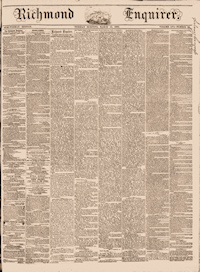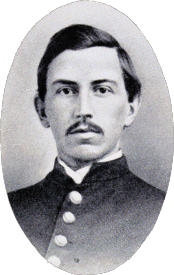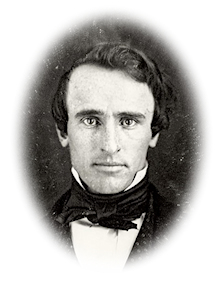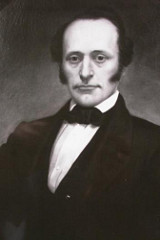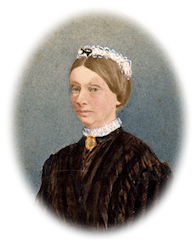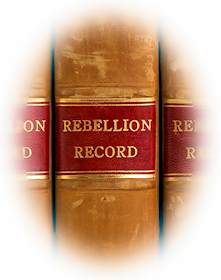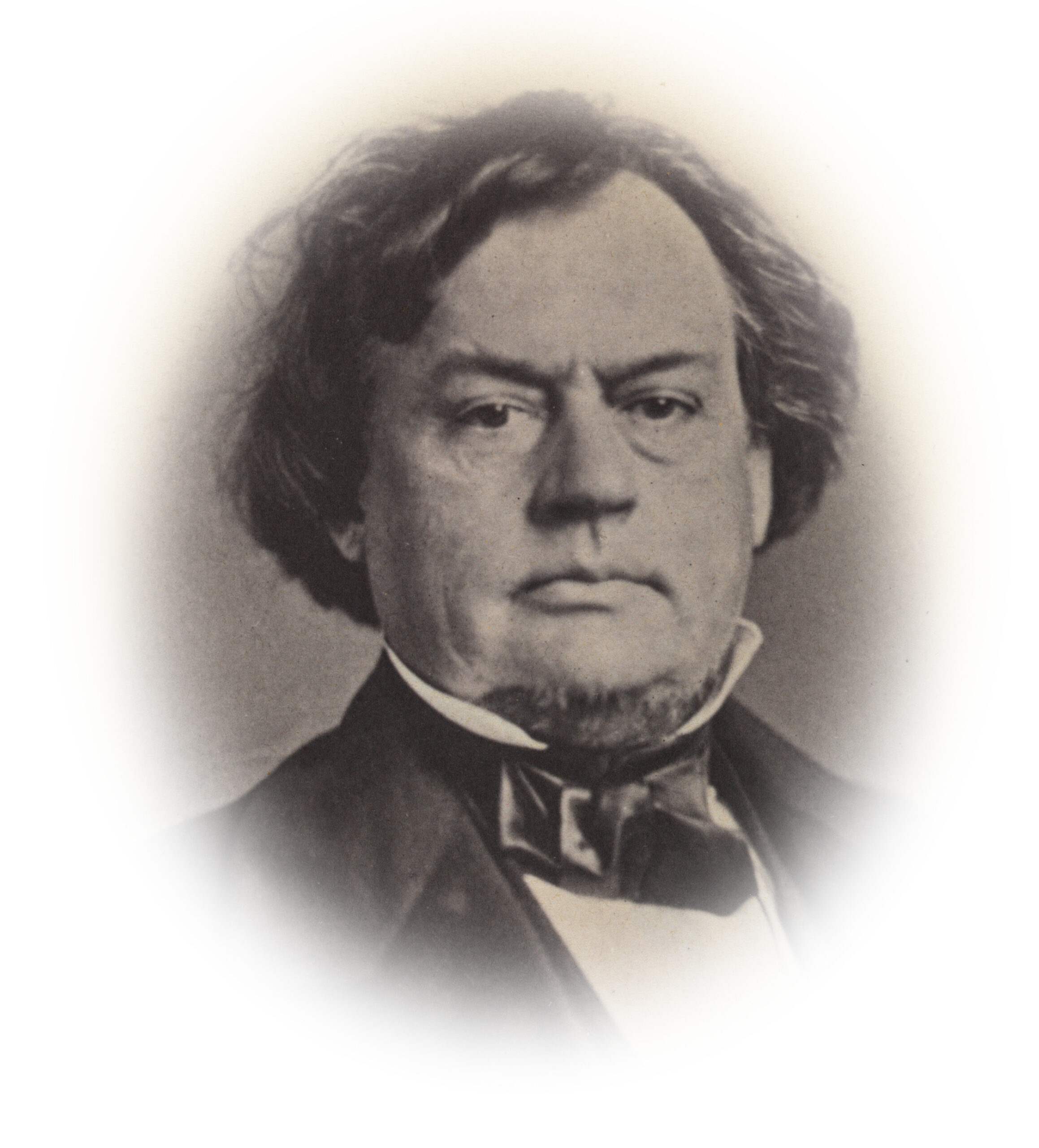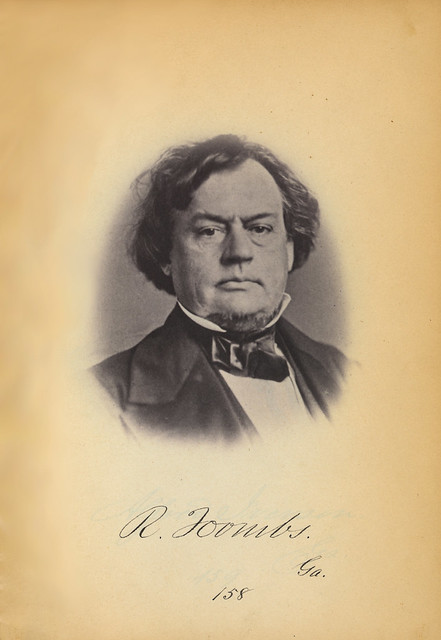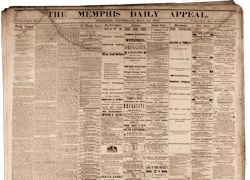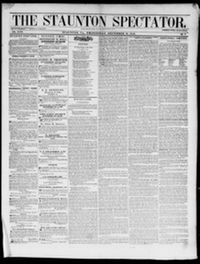April 23, 1861
Virginia, God Bless Her!
We are prouder than ever of the land of our birth. Virginia gives this day satisfactory assurance to the world that she has not the breed of noble blood. Her long patience and forbearance under wrongs and injuries will not henceforth be construed into timidity or a time-serving policy, by the world, or by any portion thereof. She has defined her position in characters of living light. At the first open declaration of hostilities on the part of the Northern aggressor, she defiantly displays in his presence her time-honored flag, with its motto so suggestive to all Tyrants.
Her sons, from the sea-shore to the mountains, come forth with unexampled enthusiasm to uphold standard sheet at the risk of life, fortune and sacred honor. The moment Virginia calls upon her sons to come to her rescue, the voice of party and of faction is hushed, to be heard no more till her battle shall be fought and her victory won. The call of Lincoln for 2300 troops from this State, to assist him in reducing our sisters of the South to subjugation, will be responded to by forty times that number, if need be, to assist in teaching him and his councillors a lesson of humility which they will never forget. The spirit of patriotism which animated our forefathers in the days of old, still burns in the hearts of their son! God bless the old Commonwealth!
An Exciting Scene in Richmond.
When the report reached Richmond, about half past 12 o’clock today, (Sunday,) that the United States Steamship Pawnee, loaded with Federal troops, was on her way up James River, the bell at the capitol was tolled immediately, as a signal for the assembling of the Volunteers of the city. The scene at the different churches was very exciting, and many of the ladies were quite unnerved. Quiet, however, was soon restored. The volunteers immediately responded to the call, and preparations were made for a gallant defence. We are only afraid, however, that the report of this Federal Steamer movements is NOT TRUE. In any United States vessel is sent to this city on a hostile errand, we verily believe that she will never return under the same colors.
P.S.—As our extra is about to be put to press, the military force of this city is being concentrated at Rocketts, in the lower part of the city and near the wharves.
A large body of citizens are also in the ranks, well armed. A number of rifled guns are to be placed in position, and everything is being got ready to give the invaders as warm a reception as possible.
Evacuation of the Navy Yard.—The Guns Spiked.
(From the ‘Norfolk Herald.’)
Arms and Government Stores Destroyed.
On Saturday and Sunday the greatest excitement prevailed in the city. Troops were hurrying to and fro, and every one anxious to know what was to be done, but unable to obtain the desired information. The rumor was that the Cumberland was about to sail from the Navy Yard, and preparations were made to prevent her.
At 12 o’clock an officer came from the yard, bearing a flag of truce, and was conducted to Gen. Taliaferro’s Head-Quarters at the Atlantic Hotel, where a consultation was held which resulted in a promise from the commandant of the yard, Com. Macauley, that none of the vessels should be removed nor a shot fired except in self defence. The quieted the excitement, but it was renewed at a later hour, when it was ascertained that the Germantown and Merrimac had been scuttled, and that the heavy shears on the wharf at which the Germantown was lying had been cut away and allowed to fall midships across her decks, carrying away the main topmasts and yards. It was also perceived that the men were busily engaged in destroying and throwing overboard side and small arms, &c, and other property, and boats were constantly passing between the Pennsylvania, Cumberland and other vessels. The assurance of the Commodore, given by his officer at the truce interview, however, tended to allay the apprehension of an immediate collision.—But the continued stirring movements at the yard, soon rendered it certain that it was the intention of Macauley to destroy all the buildings and other property there, and it was therefore with not much surprise that, about midnight, after two or three slight explosions the light of a serious conflagration was observed at the yard. This continued to increase, and before daylight the demon work of destruction was extended to the immense ship houses known as A and B, (the former containing the entire frame of the New York 74, which had been on the stocks unfinished, for some thirty-eight years,) and also to the long ranges of two story offices and stores on each side of the main gate of the yard. The flames and heat from this tremendous mass of burning material, was set by a South-west wind directly towards the line of vessels moored on the edge of the channel opposite the yard, and nearly all of these, too, were speedily enveloped in flames.
The scene at this time was grand terrific beyond description. The roar of the conflagration was loud enough to be heard at three or four miles distance—and to this were added occasional discharges from the heavy guns of the old Pennsylvania, ship-of-the-line, as they became successively heated. These guns, it is asserted, were double-shotted and directed at different parts of the yard, for the purpose of ensuring its complete demolishment. This, however, is certain—that if all her guns had been thus prepared and directed, the district’ could not have been more completely cleared of its appurtenances.
THE CUMBERLAND AND PAWNEE.
As soon as the torch had been successfully applied to the ship houses, the Pawnee, which had been kept under steam from the moment of her arrival about nightfall on Saturday, was put in motion, and, taking the Cumberland in tow, retreated down the harbor out of the reach of danger, freighted with a great portion of valuable munitions, &c, from the yard, and the Commodore and other officers who had won for themselves the inglorious distinction of destroying devils in accomplishing such a vandal work. The ships proceeded as far down as the barricades at the narrows, where the Cumberland was left at anchor, and the Pawnee continued on to Fort Monroe.
THE PROPERTY DESTROYED.
As far as we could judge from a cursory observation, the property destroyed embraced besides the ship houses and contents, the range of buildings on the North line of the yard, (except the Commodore’s and Commander’s residences, which are unhurt,) the old marine barracks and one or two workshops, the immense lifting shears, the ships Pennsylvania, Merrimac, Raritan, Columbia, and brig Dolphin—burnt to the water’s edge; the sloop Germantown, broken and sunk; the Plymouth, settled and sunk even with her deck; and a vast amount of small arms, chronometers, and valuable engines and machinery in the Ordinance and other shops, broken up and rendered utterly useless.
THE DRY DOCK.
Appearances indicated that it was intended to cripple this admirable and useful work, by blowing up the gates, but from some cause this was not done, and the dock was found to be altogether unhurt.
We cannot bring ourselves to believe that any officer of a Navy, distinguished by a high sense of honor and chivalrous courage, could willingly condescend to such an inglorious mode of warfare as this. We rather regard it as an emanation from the wretched cabal at Washington, and a practical carrying out of the tactics laid down by the villainous Sumner and other orators of the Black Republican party. Burn, sink and destroy is the word with them.
Destruction of Buildings and Property at Harper’s Ferry.
We learn by a passenger who arrived here in Richmond on Saturday that John Seddon, Esq., (member of the Virginia Legislature from Stafford county,) had been detailed with a body of Virginia troops to visit Harper’s Ferry, and proceeded to that place on Friday last.
When Mr. Seddon arrived at Harper’s Ferry, the citizens of that place, under the impression that the State authorities were about to make an unlawful seizure of their property, to the number of some two hundred and fifty or three hundred thousand, opposed the supposed invasion of their rights. On the arrival of three hundred Virginia troops, the Federal troops fearing they would be overpowered, fired the armory and evacuated it. As soon as this was done, the citizens of Harper’s Ferry saw the mistake they had made and with the State troops rushed forward to extinguish the fire and save the property within the armory, which they succeeded in doing in a great measure.
All of the machinery was saved uninjured, and 5,000 of the improved patent muskets were saved, and are now on the way to Richmond.
All of the buildings at Harper’s Ferry, and 9,000 of the old smooth bore muskets were destroyed.
There are now 2,300 State troops guarding Harper’s Ferry.
Plant Provisions.
It is particularly recommended and earnestly urged that our planters and farmers should put in large crops of provisions. We may be at the commencement of a long war, and it is essential to have full supplies for our people and troops. We must depend on ourselves, and may have no other source of supply but our own soil.
Our neighbor and friend of the ‘Whit,’ himself a practical farmer, and a gentleman of observation and foresight, in matters of wisdom,’ has the following suggestion to farmers:
At this present writing, the indications are, that everything eatable will bear a high price for the next twelve or eighteen months. The enlistment of armies on a grand scale will withdraw many from the pursuits of agriculture, and thereby diminish the product. Armies are, moreover, very profuse consumers, and require a much greater amount of food to keep them in game cock trim, than the same number of men in the ordinary vocations of life. We may, therefore, anticipate an unusual demand for meat and breadstuffs of every description. It is yet time for the Virginia farmers to enlarge their crops of corn, and they would probably act wisely in devotion the greater portion of their labor this year to the cultivation of that crop.
Apart from the disturbed condition of our own country, the old stocks of cereals are quite exhausted in Europe, and the late news foreshadows a war on a gigantic scale on that side of the water. With wars and scarcity in both Hemispheres, the price of bread will only be limited by the capacity to pay.
Virginians, To Arms!
For the third time in your history—a period of two hundred and forty one years—you are called upon to take up arms in defence of your homes against the invasion of a foreign foe. For the third time since the settlement of Jamestown, every Virginian is now called upon to battle for his State, his property, his honor, his life, and the lives of those dearer to him than life.
The following official document has been sent to us from the Executive Department for publication.
EXECUTIVE DEPARTMENT,
RICHMOND, APRIL 20, 1861.
In obedience to a Resolution of the Convention, the injunction of secrecy having been removed, the following section of an Ordinance passed by the Convention is published for the information of the public:
‘Be it ordained, That the Governor of this Commonwealth be, and he is hereby, authorized and required to call into the service of the State as many volunteers as may be necessary to repel invasion and protect the citizens of the State in the present emergency, which volunteers he will receive in companies and organize into Regiments, Brigades and Divisions, according to the force required, and the Governor shall appoint and commission the general, field and staff officers of said volunteers, and proceed to have them organized and instructed. And that he shall immediately invite all efficient and worthy Virginians, and residents of Virginia, in the Army and Navy of the United States, to retire therefrom, and to enter the service of Virginia, assigning to them such rank as will not reverse the relative rank held by them in the United States service, and will at least be equivalent thereto.’
By order of the Governor,
GEORGE W. MUNFORD,
Secretary of the Commonwealth.
The following Proclamation was issued by Gov. Letcher yesterday:
By the Governor of Virginia,
A PROCLAMATION.
By virtue of authority vested in the Executive by the Convention, I JOHN LETCHER, Governor of the Commonwealth of Virginia, do hereby order that each Volunteer Company, equipped and armed, whether of Infantry, Artillery or Riflemen, in the counties lying West of the city of Richmond, between Richmond the Blue Ridge and in the Valley of Virginia from the county of Rockbridge to the Tennessee line, establish forthwith on the lines of speedy communication a rendezvous and hold themselves in readiness for immediate orders. Telegraph or send by express to the Executive the name of Captains, number of men and description of force. It is further ordered that officers of all grades on the line of the Potomac river render obedience to the orders of Gen. PHILIP ST. GEORGE COCKE, who has been assigned to the command of that section of the military operations of the State bounded by said river.
{L.S.} Given under my hand, as Governor and
under the Seal of the Commonwealth at
Richmond, 21st April, 1861, and in the
85th year of the Commonwealth.
{Signed} JOHN LETCHER.
By the Governor, GEORGE W. MUNFORD,
Secretary of the Commonwealth.



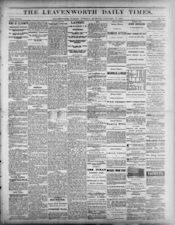
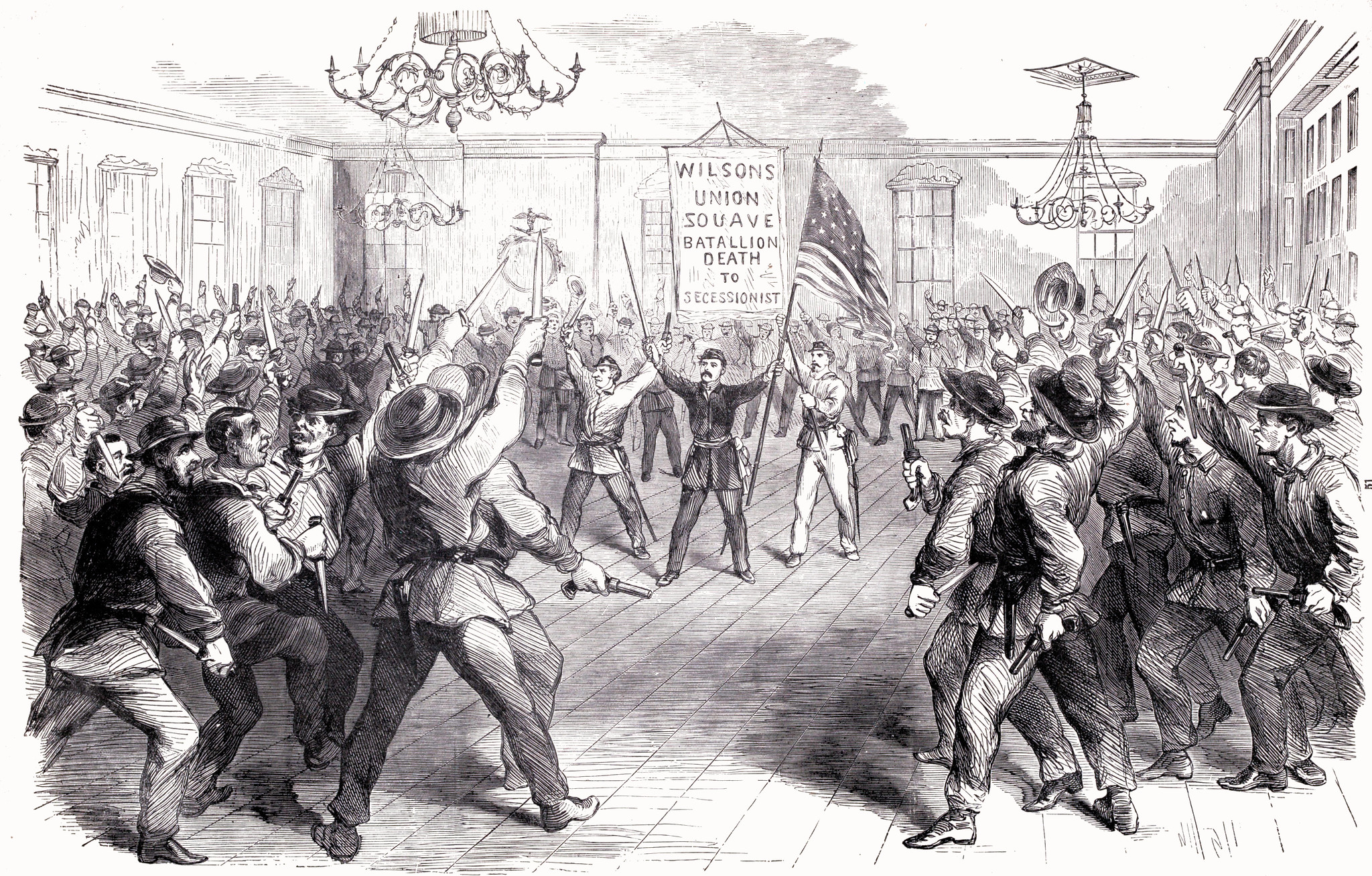
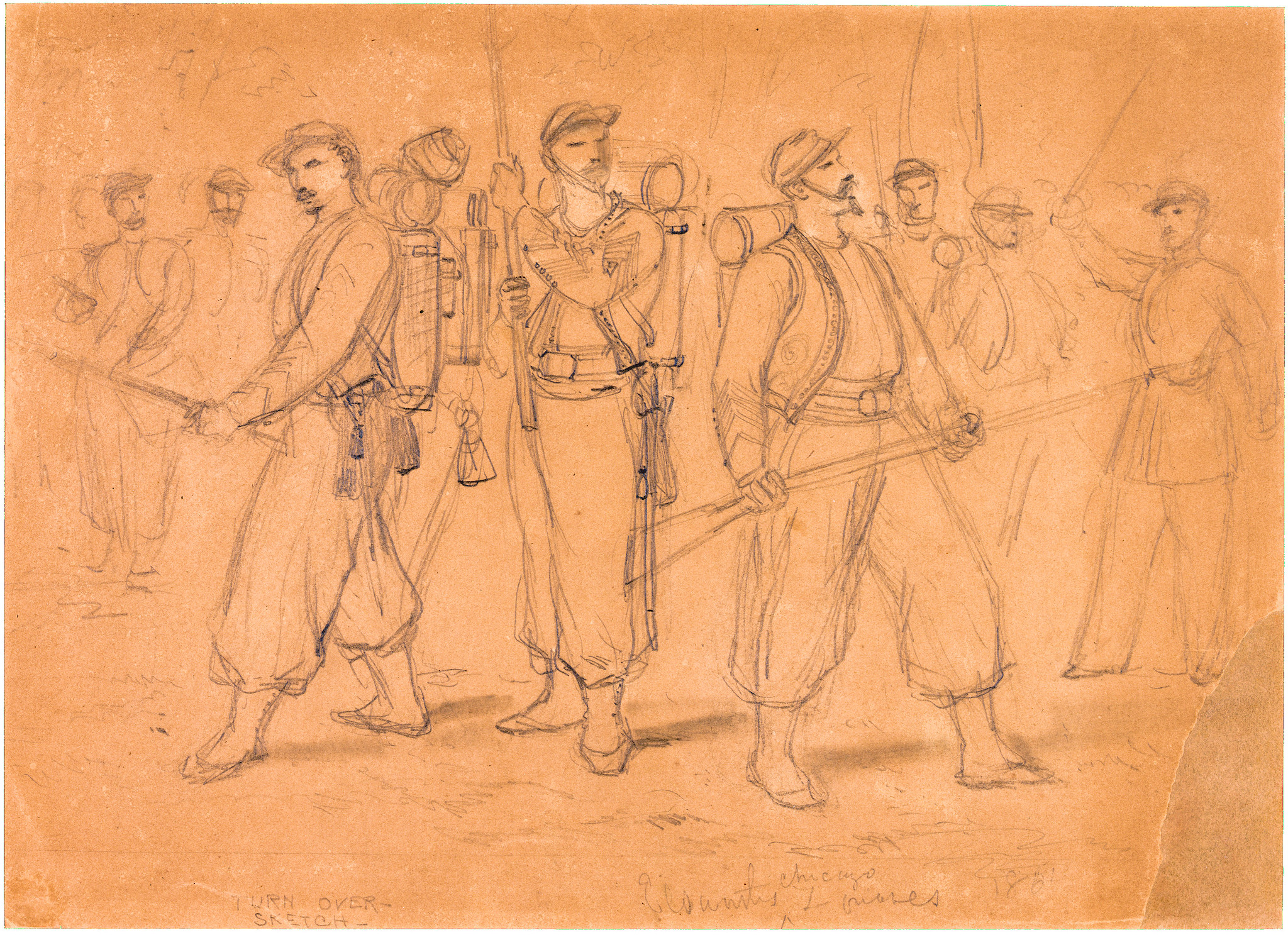
![Title: Elsworths [sic] Chicago Zouaves, 1861 by Alfred R. Waud Title: Elsworths [sic] Chicago Zouaves, 1861 by Alfred R. Waud](https://cdn.loc.gov/service/pnp/ppmsca/20800/20834_150px.jpg)
